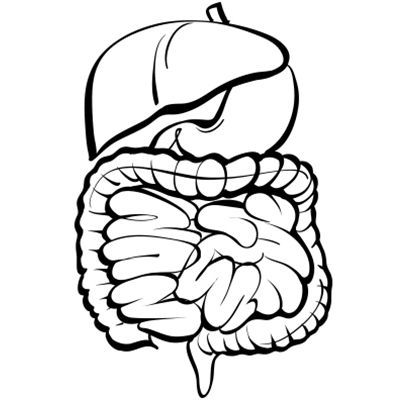Gemcitabine-Free Regimen Passes Test in Metastatic Pancreatic Cancer
A gemcitabine-free regimen resulted in numerically better survival compared with a conventional gemcitabine regimen in patients with metastatic pancreatic cancer, results of a randomized trial showed.

A gemcitabine-free regimen resulted in numerically better survival compared with a conventional gemcitabine regimen in patients with metastatic pancreatic cancer, results of a randomized trial showed.
Nab-paclitaxel (Abraxane) paired with fluorouracil (5-FU)/leucovorin or gemcitabine led to objective responses in about 35% of patients, and the 5-FU/leucovorin group exceeded the prespecified goal of a 4-month progression-free survival (PFS) rate of 50%.1Patients randomized to the 5-FU/leucovorin regimen had a 12-month survival of 48% versus 41% for gemcitabine-containing therapy. The 18-month survival of the 5-FU/leucovorin group was more than twice that of the gemcitabine arm.
Tolerability was comparable between the 2 groups, Olivier Dubreuil, MD, a medical oncologist at Pitie Salpetriere Hospital in Paris, and colleagues reported at the 2017 Gastrointestinal Cancers Symposium in San Francisco.
“Results of the [gemcitabine] arm are concordant with those of the phase III MPACT study [that evaluated nab-paclitaxel/gemcitabine combination therapy],” the investigators concluded in a poster presentation. “The nab-paclitaxel/5-FU/leucovorin regimen deserves evaluation in a phase III trial.”
The MPACT trial showed that the addition of nab-paclitaxel to gemcitabine improved survival in metastatic pancreatic cancer as compared with gemcitabine alone.2Translational data suggested that low expression ofhENT1predicts lack of response to gemcitabine,3providing a rationale to evaluate regimens that do not include gemcitabine.
Dubreuil and colleagues reported findings from the randomized AFUGEM trial that compared the combination of nab-paclitaxel and simplified 5-FU/leucovorin (LV5FU2) with the nab-paclitaxel/gemcitabine regimen from the MPACT trial. Patients were randomized 2:1 to nab-paclitaxel/LV5FU2 or nab-paclitaxel/gemcitabine.
The primary endpoint of the trial was a targeted 4-month PFS of 50% in the experimental arm. If the trial met the endpoint, the nab-paclitaxel/LV5FU2 regimen was considered worthwhile for evaluation in a phase III trial.
Data analysis included 114 patients with previously untreated metastatic pancreatic cancer. The patients had a median age of 66 and an ECOG performance status of 0 to 2. About 37% of the patients had 2 or more metastatic sites, and 75% had liver metastases. About 13% of the patients had undergone surgical resection.
The LV5FU2 regimen had tolerability that was at least comparable to the gemcitabine regimen, including rates of grade 3/4 neutropenia (23.3% vs 23.7%), febrile neutropenia (8.2% vs 5.3%), anemia (5.5% vs 10.5%), thrombocytopenia (0% vs 15.8%), mucositis (9.6% vs 2.6%), diarrhea (12.3% vs 7.9%), fatigue (21.9% vs 21.1%), paresthesia (19.2% vs 10.5%), elevated ALT (4.1% vs 13.2%), and elevated AST (5.5% vs 13.2%).
Dubreuil and colleagues reported that about 80% of patients in both groups received the planned number of cycles of therapy at the specified dosages.
The objective response rate was 35.1% with LV5FU2 and 36% with the gemcitabine regimen. The 4-month PFS was 55.6% with LV5FU2 and 54% with gemcitabine. Median PFS was 5.9 months with LV5FU2 and 4.9 months with gemcitabine (HR, 0.79; 95% CI, 0.52-1.20).
With a median follow-up of 16.9 months, the LV5FU2 group had a median overall survival of 11.4 months compared with 9.2 months with the gemcitabine regimen. Overall survival rates favored the LV5FU2 group at 12 (48% vs 41%) and 18 months (34% vs 13%).
References:
- Dubreuil O, Bachet JB, Hammel P, et al. Nab-paclitaxel plus gemcitabine or plus simplified LV5FU2 as first-line therapy in patients with metastatic pancreatic adenocarcinoma: A GERCOR randomized phase II study (AFUGEM).J Clin Oncol. 2017;35(suppl 4S; abstr 350).
- Von Hoff DD, Ervin T, Arena FP, et al. Increased survival in pancreatic cancer with nab-paclitaxel plus gemcitabine.N Engl J Med. 2013;369(18):1691-1703. doi:10.1056/NEJMoa1304369.
- Greenhalf W, Ghaneh P, Neoptolemos JP, et al; European Study Group for Pancreatic Cancer Investigators. Pancreatic cancer hENT1 expression and survival from gemcitabine in patients from the ESPAC-3 trial.J Natl Cancer Inst.2014;106(1):djt347. doi:10.1093/jnci/gjt347.